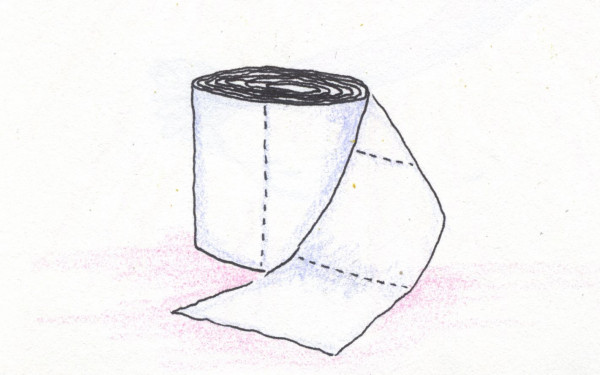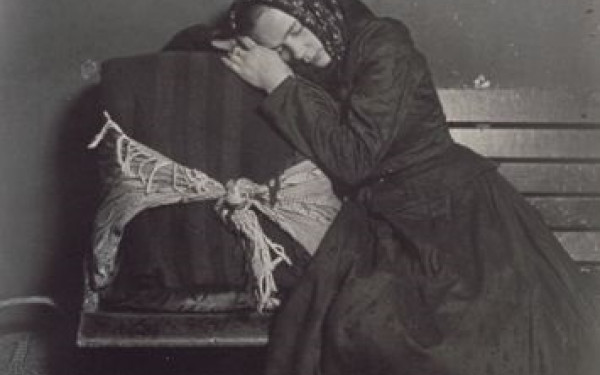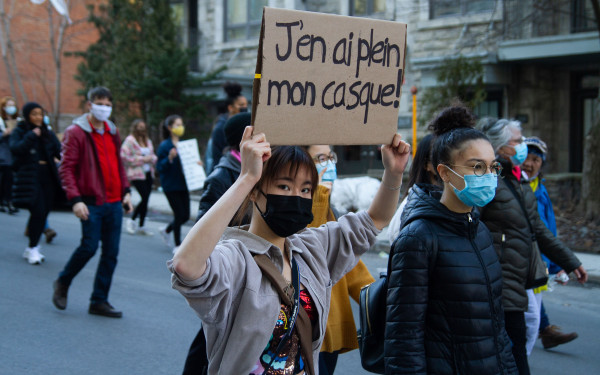Is Concordia responsible for this student’s deportation?
Elijah Pedriani claims he was made to violate his visa, costing him thousands of dollars and forcing him to leave the country
In 2017, Elijah Pedriani moved to Montreal from New Haven, Vermont to study Mechanical Engineering at Concordia. He had heard the university’s program was challenging and was enticed by relatively cheap tuition fees, as well as the thought of living in a large city.
However, as he closed in on his penultimate year at Concordia, his application to renew his study permit was denied. Forced to leave the country, Pedriani would subsequently spend more than $15,000 in legal fees, wasted tuition costs, and rent as the ordeal unfolded.
According to Pedriani, his application to renew his study permit was denied because of conditions Concordia had imposed upon him, leaving him with no other choice but to break the terms of his visa.
Some context: to study in Quebec, international students need a Certificat d’Acceptation du Québec. This permit enables a temporary stay in the province, provided the bearer completes the studies on their permit, has health insurance, and studies full time.
It’s the last condition he hadn’t met: Pedriani had studied part-time during his stay in Canada.
However, Pedriani claims that, not only did advisors present part-time studies as a legitimate option for him, the administration also forced him to take two semesters as a part-time student. Yet not once was he informed that this would lead to a violation of his study permit, he said.
“My removal had nothing to do with my academic performance in my last few years at the university; it was legal issues.” — Elijah Pedriani
During his second semester, in the winter of 2017, Pedriani was struggling with the workload of his exam season. He decided to reach out to Sabrina Poirier, his academic advisor.
“I was told that, as an engineering student, I had special permission to drop a course very late in the semester, before the final exam,” said Pedriani. “I was told the engineering department had this special privilege, while other departments did not.” After explaining his situation, Pedriani was advised to drop one of his courses and focus on his other finals. (Poirier declined to give comment for this article.)
“In retrospect, this would have been the time for advisors to mention to me that dropping one of my four courses would put me in part-time status and violate my CAQ and Study Permit,” he said.
But this was only the first instance of Concordia giving Pedriani faulty advice.
Although he passed his other classes, Pedriani was placed on academic probation because of low grades. Eventually, his poor academic performance got him expelled and he had to apply for readmission.
He was allowed to re-enroll, but would need to follow certain conditions. A few classes would have to be retaken and, for the 2018-19 school year, Pedriani could only take 9 credits per semester, effectively making him a part-time student.
Associate Dean of the Engineering Faculty Anjali Agarwal signed the letter outlining these prerequisites “I made the assumption that, because the letter was signed by an Associate Dean at the university, that it was perfectly fine to proceed and take the next 2 semesters with the 9 credit limit," said Pedriani.
However, said Agarwal, this was simply the school’s procedure. “Students readmitted are placed on academic probation as per the regulations outlined in [...] the Undergraduate Calendar,” she stated, stressing that immigration status is largely irrelevant to the decision of if and how a student is readmitted. “This process was followed by earlier Associate Deans before my term, and it was continued under my term as Associate Dean,” she said.
Because of this, Pedriani would, from this point on, be ineligible for a renewal of his CAQ.
However, for him, being ejected from the program had been a wake-up call, and he moved forward with his studies.
“I worked incredibly hard to earn back my full-time status,” he said. “I changed my lifestyle and mindset to be completely geared toward a full-time focus on academics, as the career I've dreamed of [...] requires an engineering degree.” Overcoming his academic challenges made proud to be a student at Concordia, he continued.
In the summer of 2021, three years later, Pedriani applied for a renewal of his study permit.
“I received the renewal request months later and it was declined. The government stated that the primary reason my documents were declined was because I had studied part-time during certain semesters.”
He said that advisors never warned him that choosing the options they’d given him would put his study permit at risk.
“Why would you offer him the opportunity to get readmitted into the program when the offer you provided specifically was in violation of his CAQ?” — Valerie Pedriani
Pedriani added that, since starting Concordia, he had been constantly told to include his Student ID with every email. This made it even more confusing when the people he spoke to couldn't seem to identify him as an international student.
He initially reached out to Tatiana Gomez, an immigration specialist at the International Students Office. The government had stated that Pedriani's justification of his part-time studies, as well as his proof of finance, had been unconvincing. By email, Gomez told him he should resend his application with more robust documentation and argumentation. “You don’t have time to lose,” she told Pedriani, urging him to hire a lawyer.
To receive some of the requisite documentation, Pedriani explained his situation to Poirier, but she told him that “this is really not something I can help with at this time.” She then directed him back to the ISO.
A month after first speaking with her, Pedriani emailed Gomez again. “The re-application is due by the end of the week,” he stressed. “If this re-application is declined, it will be illegal for me to study at a Canadian university and I will have to leave both the university and the country, per the government of Quebec.”
“I am reaching out to see if there is any way you could help,” the email ended.
This time, Gomez referred him to the undergraduate calendar, as well as suggesting he write to his academic advisor to get further documentation for his re-application.
“That was the full extent of ISO’s help,” said Pedriani.
However, Gomez also called attention to the fact that “the ISO has a limited mandate to provide students with information and advice with regards to their temporary status in Canada as it relates to their studies at Concordia.” Pedriani’s situation simply exceeded this mandate.
Although Gomez declined to comment on Pedriani’s case specifically, she mentioned that she was sorry to hear of how underwhelmed he had been with the Office. “In my experience, the ISO staff genuinely cares about assisting students and strives to provide as much support as we can within our mandate,” she said.
Seeing little else to do, his family hired Léa Charbonneau, an immigration lawyer from Brunel Immigration. She attempted to justify each of Pedriani’s part-time semesters to the government. In order to bolster his case, Pedriani said he contacted his advisor and the ISO to get supporting documents, but both told him that they couldn’t provide any.
“Out of desperation for supporting documents from the school, I personally reached out to one of my professors, who graciously provided a well-written supporting document which backed that I was a full-time student in good standing within the program,” he added.
Regardless, the appeals stalled.
On November 1st, Concordia contacted Pedriani, and told him that he had a week to submit his immigration documents, barring which he would be expelled.
“I was devastated. I could barely focus on my studies while trying to send emails to the school, the government, and our immigration lawyer about this news,” he continued.
At this point, he had already completed the application process, but was awaiting an answer from the government. Mostly as a result of pandemic-induced complications, Canada’s immigration department currently has a backlog of over 1.8 million applications.
Likewise, Gomez claimed that requests to ISO had surged since the beginning of the pandemic, “averaging 200 per day and going up to 500 per day during peak periods.”
Several international students corroborated that ISO's service during these periods tended to be inaccessible and of little help.
Eventually, Concordia granted Pedriani another week to submit his documents. His lawyer urged the government to process the application before Concordia’s extended deadline.
She succeeded. Finally, on the last day of the deadline, Pedriani received his answer. His application had been refused, and he had 90 days to leave the country.
All told, his legal fees were around $3,500 CAD. He also lost an additional $11,795.44 CAD, the price of his tuition for the semester. Although he was able to reach an agreement with his landlord, the debacle also cost him two months' rent.
“My removal had nothing to do with my academic performance in my last few years at the university; it was legal issues,” he said.
This winter, Pedriani’s mother, Valerie, emailed Agarwal, the Associate Dean who had supervised his readmission.“Why would you offer him the opportunity to get readmitted into the program when the offer you provided specifically was in violation of his CAQ?” Valerie Pedriani asked.
Agarwal simply replied that “the decision to readmit is based on the academic grounds” and that she should refer to ISO in regards to questions regarding CAQ’s and visas. Agarwal also said she would forward Pedriani’s message to the current associate dean, but no follow-up ever came.
Pedriani is now finishing his Bachelor’s at the University of Vermont, but even that came with its own complications.
He said that he had to insist and demand that each of his courses be counted, forcing him to provide each and every syllabus to all the classes he had ever taken at Concordia.
"I am still currently fighting for transfer credits with their advising department,” he said.



_600_375_90_s_c1.jpg)
